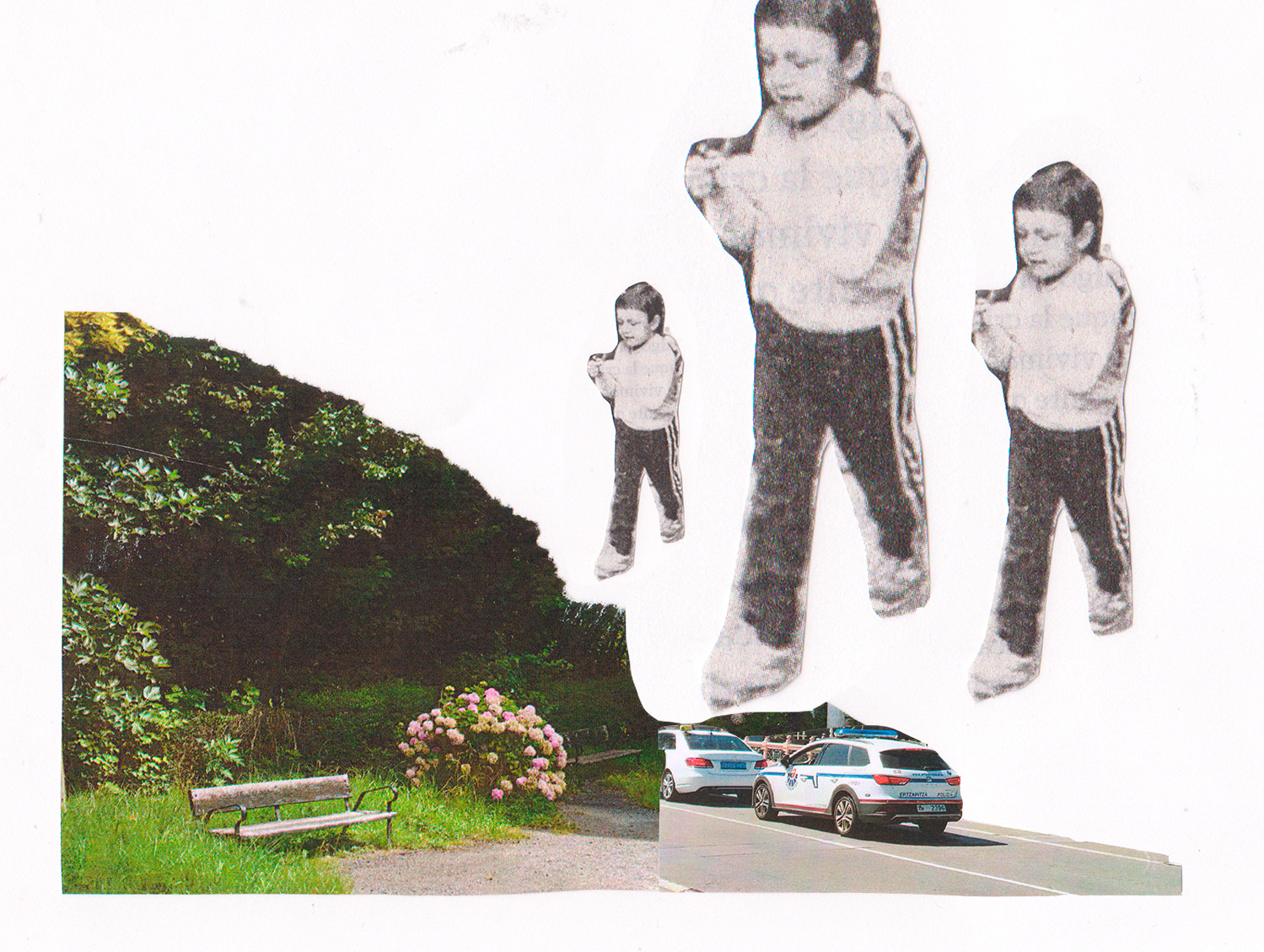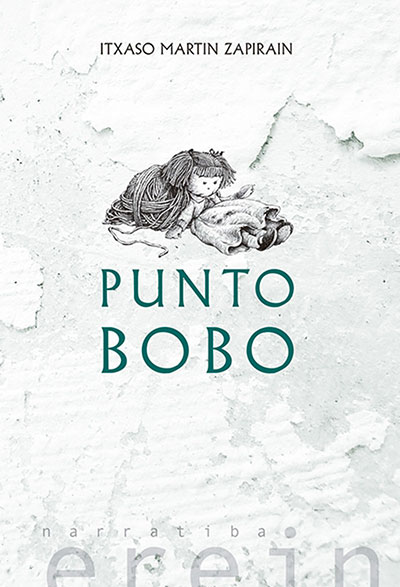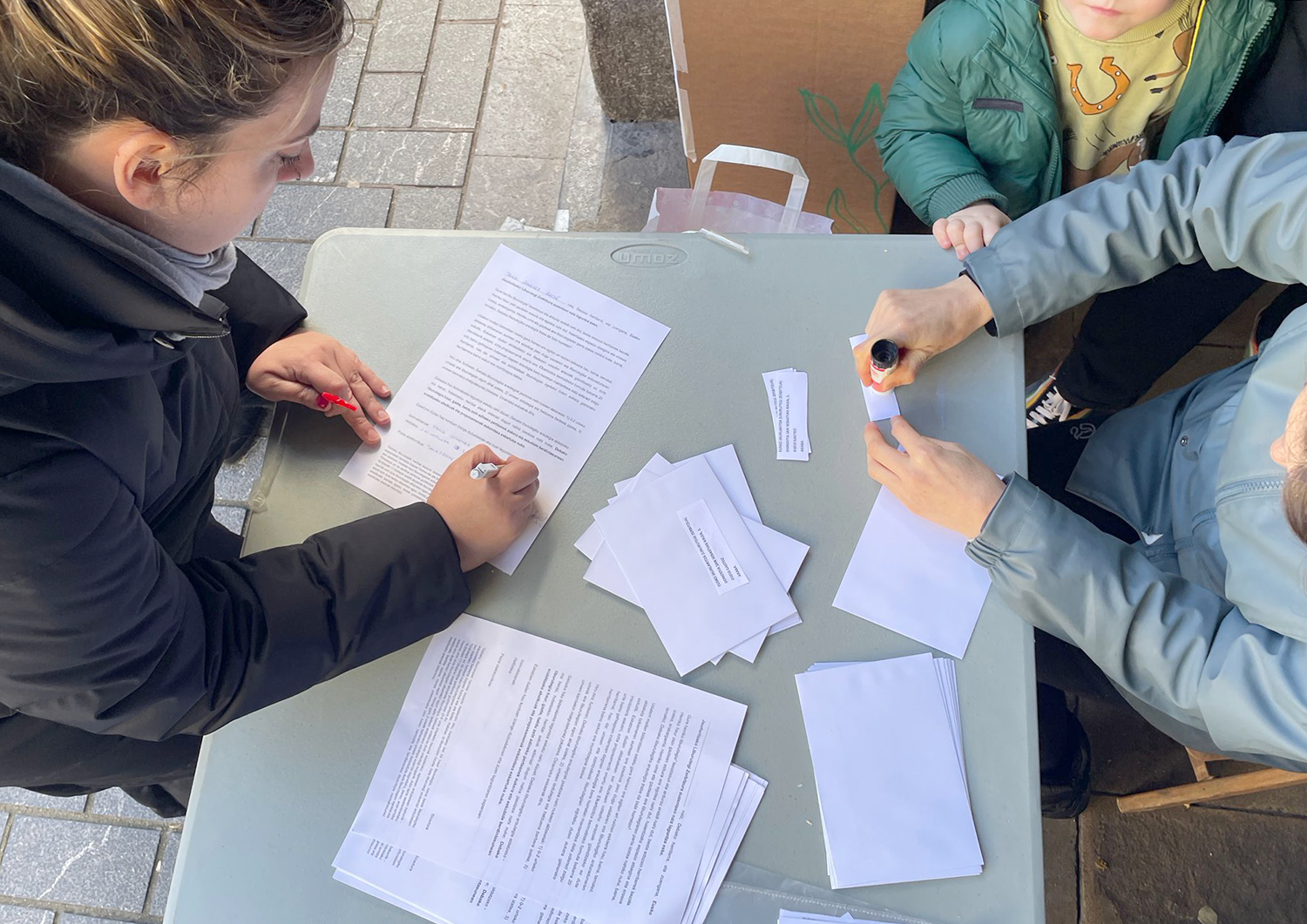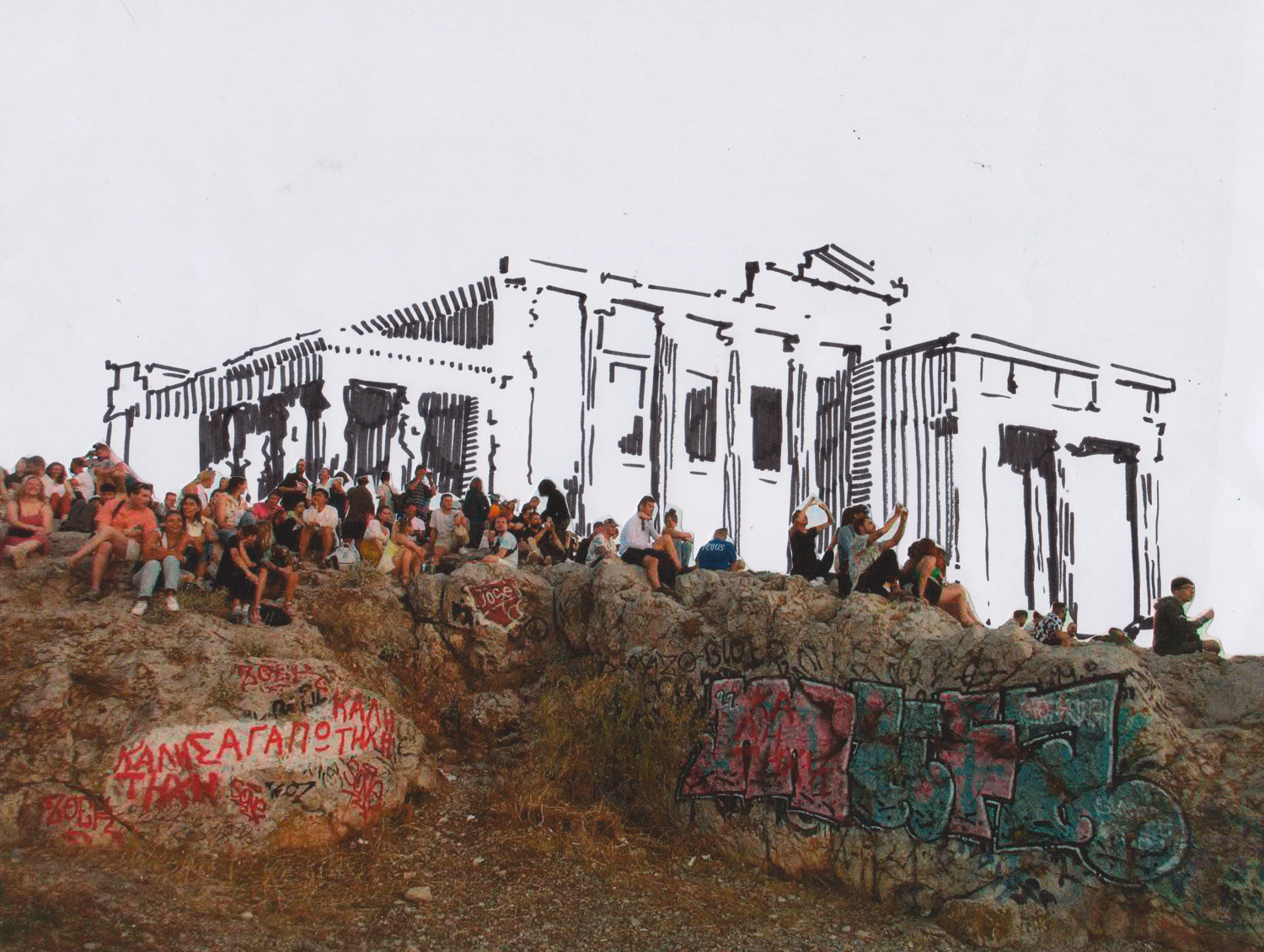"Sarrionandia puts translation and creation at the same level"
- A year and a half ago, Professor Aiora Jaka read at the University of the Basque Country the doctoral thesis on Translation and the practice of translation in the works of Joseba Sarrionandia. The publication saw the light last year, in the IKER section of Euskaltzaindia.Con Jaka we have started through the works translated by Joseba Sarrionandia, helped by the history and theories of translation.
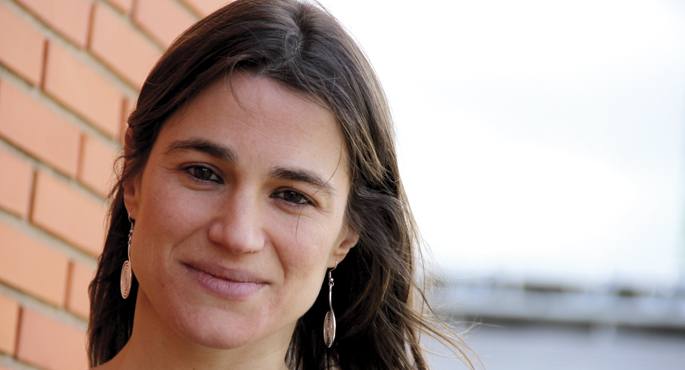
You say that Sarrionandia is the first postmodern translator that speaks Basque…
Some will agree on that post-modern name and others will not. It's a complex thing. Each discipline has used postmodernism in its own way, words have different meanings. I, in my thesis, wanted to distinguish modern from postmodern, although limitations are not clear. In short, postmodernity, its development, its evolution, would be the continuation of modernity. Both are united and it is difficult to distinguish them. Distribution can be dangerous, and postmodernism itself calls these binary divisions into question. However, despite all the contradictions, and with the aim of facilitating work, I have made a distinction between the two. So modern translation, translation, would start when they do science. For many centuries, translation has been an empirical discipline, each of which used to act as it could, with no other theory than experience. In modernity, in the middle of the twentieth century, translation encompasses the level of autonomous science: rules of translation, characteristics of translation, discussion about fidelity, respect for the original… It is a reflection on translation. The postmodern, on the other hand, will say that this transmission of rules is not accurate, instead of prescriptive, prefer to be descriptive, evidence the impossibilities of perfect science, deny that there is a single way of translating, the only way to understand the text. They say that translation is not absolute science.
Joseba Sarrionandia, in your opinion, would have our “first postmodern translator”…
In quotation marks, always. In our case, for the first time, Sarrionandia is aware that translation is never a perfect job, that there is not the only way to translate a text, that it is impossible… From Leizarraga to the 20th century, the translators have analyzed the incomes they have made to their work and it is always a motto: Respect for the word of God, the original is sacred, it is true, absolute... “This ignorant and humble translator has made an effort to return him as honest and faithful as he can. Excuse me for failing.” That is what it says. Their goal is fidelity and they always ask for forgiveness in case. Instead, Sarrionandia breaks it completely. In his opinion, the translator is a creator. The translator creates and reproduces an earlier text according to its interpretation. It puts translation and creation at the same level. Until then, the translation was secondary, it was a reproduction, it was a copy, it had no prestige. Many times the name of the translator did not even appear!
In Sarrionandia, has the opinion on the translation always been the same, or has it been developed?
It's very interesting the prologue he makes to the book Izkiriatuta nire poemak, which I found written. It's a 1985 book, and by then it was already believed that it was Sarrionandia. Consider that the translation is to create. A few years before, in 1978, in Pott magazine, there is an explanatory text: It is a translation and a practice of betrayal. No signature, except Pottugalete. They say it's from Bernardo Atxaga, but there's no doubt that Sarrionandia would be there as well. I think I had already meditated. However, there is one thing there, namely that Sarrionandia returns it fairly faithfully. Despite the creation, it doesn't move far from the original. It's pretty accurate. What happens is that he does not claim fidelity, he does not take it as the main criterion. My poem, which I found written, says the title of his book. Poems “Ene”, “Nireak”, either creation or regeneration.
It’s the first one we have on that road, but you’ve also mentioned in your thesis Jon Mirande and Gabriel Aresti…
Both Mirande and Aresti have precedents. The two started to translate everything. Until then, mostly sacred texts were translated, to which works that in the following languages were considered canonical texts, that is, classical ones: Sofokles, Plato, Horace… were systematically translated into a nationalist project, as saying to the language next door “we are too”. Among others, Orixe, Andima Ibiñagabeitia, Jokin Zaitegi and others. Exiles. Mirand completely broke that path, completely breaking it with religion. He had other plans: Nietzsche, Bretons… He opened a path, although he didn’t get it to follow him. For its part, Sarrionandia will be directly affected by Mirande's medical leave in Barcelona. To start with, Miranda decides which text to translate. Despite giving the good approval to the classics, he returns those he likes. Despite his attempt to publish them, he rarely managed to publish them.
And Gabriel Aresti?
Aresti also opened many doors. He followed the path of social poetry, he liked many Spanish poets… Translated by Nazim Hikmet, Bocaccio… I mean that both Mirand and Aresti took a giant step, they opened a path that their predecessors did not open, and that is important in Sarrionandia. On the other hand, also from the point of view of reflection, Miranda and Aresti question fidelity, demand regeneration. You have real texts, also apocryphs, we don’t know if they are creations, if they are translations… The two started to break narrow borders.
Written… you mentioned earlier.
Sarrionandia used the anthologies here and there for the elaboration of this book. But the author is Sarrionandia himself, who has made the choice, who has recreated the texts. Objects of return are an instrument for creation. I think it would be different if the translation had been a custom job. I mean, when the work is commissioned, the conditions are set by the publisher, or the corresponding one. When Joanes Leizarraga Joana Albret ordered him to return the Bible, he would impose a number of conditions on him, he would indicate the objective. The sokatira between the original text and the translation is always there, but when one by his own will returns a text – as Sarrionandia has done many times – freedom is greater, the objective is not loyalty, but regeneration.
When Sarrionandia is back, does regeneration measure or is freedom unlimited?
I believe that Sarrionandia is reinventing itself on purpose, precisely in order to respond to those who believe that translation is somewhat narrow. Sarrionandia takes the freedom to return, questions the authority of the author… In the 1980s he shares the idea of Latin American authors: “There is no original text.” They said that all the texts were rewritten from an earlier text, everything belongs to everyone… It is an extreme opinion, if you will, but also from there in the work of Sarrionandia: “To come back is to reinvent myself, and I will take the idea to the extreme,” as I said. But I have already said this before, when it comes to commissioning work, I believe that the limit would be respected. In the translations made by Sarrionandia there is play, play with the reader, an original, another translated, then the apocryphal… It seems that it tells the reader: “What is the difference between creative work and translation? I've fooled you." On the other hand, there is plagiarism! Bernardo Atxaga has also written on this subject, he has claimed plagiarism. There is always the famous tale of Borges, “Pierre Menard, author of the Quijote”. It's a game, it's a story, but that's where Borges shows what happens when you want to take the idea of fidelity to the extreme. It talks about the frontier between creativity and translation. It is the idea that postmodernism has taken: there are no limits, everything is blurry…
All in the fog.
That's it. Everything is free. That is also dangerous...
You yourself are a translator, and you know that. Where is our translator?
Once the thesis is completed, it may be time to begin to respond to it. Is there an author or translator of the size of Sarrionandia who is dedicated to translating in such a free way? I don't know. It would be good if I stopped. There was a time when several people made translations by their own will. Today, most of them are commissioned. It will be the collection of Universal Literature of EIZIE, it will be the book of children and youth literature, it will be the Jokin Zaitegi Prize, the desire of some publisher… In them, the translator has very narrow concrete criteria and limits, from the very beginning. However, today it is accepted that the translation is of the translator, it is already known that the translator has a certain freedom, that he will take licenses. I think the excuses of the translator were gone forever.
What do you say about yourself? With Maialen Marin you have already won the Jokin Zaitegi Prize, from China the Mo Yan Chief is increasingly animated so you are translating the collection of stories…
The slogan is still to walk close to the original. What's more, one of the reasons we've chosen our project is that it's closer to Chinese. Another one, which works well in Basque. After all, that will always be the objective. It is a so-strip between the original and the returned. The search for balance is what is most valued today. In the 18th century, in France, it was said that Les Belles Infidèles, the beautiful infidele, despite the machismo emanating from the phrase, should be a precious translation. That was the criterion.
Sometimes I don't know if it's too much. That we're eating a pipe, that we're talking about anything else, that we're bringing it up. We like to speak aloud, to leave almost no pause, to cover the voices, to throw a bigger one. Talk about each one of them, each one of them, what we... [+]
Puntobobo
Itxaso Martin Zapirain
Sowing, 2024
----------------------------------------------------
The title and cover image (Puntobobo, Wool Bite and Rag Doll) will suggest mental health, making the point and childhood, but more patches will be rolled up as the book... [+]
Party and recreation. Oral History of Rock Radical Vasco
Javier 'Jerry' Corral
Books, 2025
------------------------------------------------
Javier Corral ‘Jerry’ was a student of the first Journalism Promotion of the UPV, along with many other well-known names who have... [+]
Itsasoa bete urre
Dani Martirena
Irudiak: Ana Ibañez
Txalaparta, 2022
--------------------------------------------
Liburu honetara barneratzen den irakurleak sentsazio ugari izango ditu. Deigarria da azaleko letren urre kolorea eta zuritasuna, goialdean ageri den... [+]
Hirietako egunerokoa interesatzen zaio Sarah Babiker kazetariari; ez, ordea, postaletako irudia, baizik eta auzoetan, parkeetan, eskoletan, garatzen den bizitza; bertan dabilen jendea. Lurralde horretan kokatzen dira bere artikuluak, baita iaz argitaratu zituen bi lanak ere... [+]
Migranteak
Issa watanabe
1545 argitaletxea, 2024
-------------------------------------------
Ezagutzen ez nuen 1545 argitaletxeak 2024an itzuli eta kaleratu du Issa Watanaberen Migranteak liburua. Animalia talde batek egiten duen migrazio prozesua kontatzen du; eta... [+]
Adania
Shibli
Translation: Aitor Blanco Leoz
Igela, 2024
----------------------------------------------
During these days, an Israeli soldier is bombarding hospitals, schools, Palestinian refugee camps with drones as if it were a video game, while in the West we see on... [+]
Winter has always happened to me melancholy. It was time to look out the window and remember. An ineluctable bureaucracy between autumn and spring, painting back blank on a vertical parcel to reflect whatever you want. It's not just my business, those who forget that the snow is... [+]









